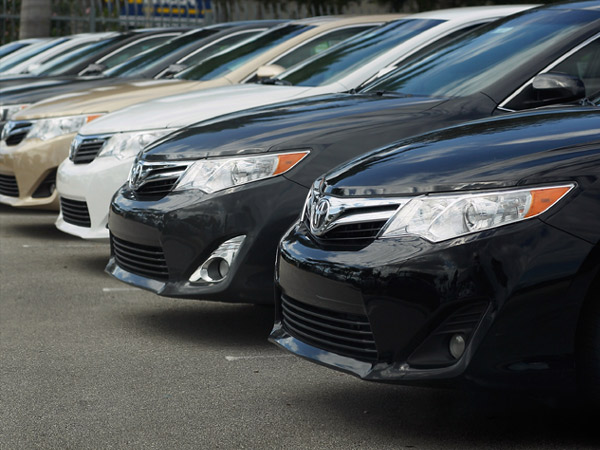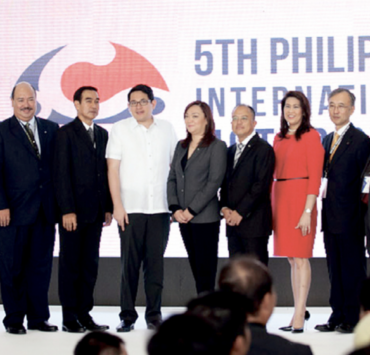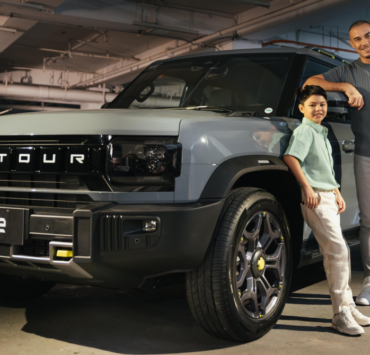Will 2025 top CAMPI’s annual sales charts?

The Philippine car industry seems to be on a roll, years after the devastation caused by the COVID-19 pandemic.
New-car sales last year hit a record 475,094 units, which is around 7.6 percent higher than in 2023. The vast majority of these were commercial vehicles (including sport-utility vehicles, multi-purpose vehicles, pickup trucks, crossovers and buses) at 74.51 percent, while passenger cars took the rest.
As in many years prior, Toyota Motor Philippines (TMP) was the top-notcher with a mammoth 45.41-percent market share, followed by Mitsubishi Motors Philippines Corporation at 18.76 percent and Ford Philippines at 5.89 percent.
And also as in many years prior, these numbers are courtesy of the Chamber of Automotive Manufacturers of the Philippines Inc. (CAMPI), which is celebrating its 30th anniversary this year. We take a look at the CAMPI’s role, as well as some trends that will help determine if the local auto industry will reach new heights in 2025.
3 decades in the driver’s seat
CAMPI was founded on May 16, 1995 “to promote the interests of the automotive industry with the end in view of developing a viable domestic industry,” the group said in its official website.
Besides actively participating in the formulation of policies, programs, regulations and standards for the automotive industry, the group also spearheads numerous advocacies like enhancing industry competitiveness, skill enhancement, environmental protection, consumer protection, and corporate social responsibility.
“CAMPI is widely recognized by government and private sector groups as the lead organization in the Philippine automotive industry,” the group added.
Members are divided into Regular and Associate – the former are registered in the vehicle manufacturing program of the Board of Investments, while the latter include assemblers, importers and distributors.
As of press time, CAMPI members shown on the official website include BMW, Columbian Autocar Corporation, Changan, Chery, Daewoo, Ferrari, Ford, Foton, Hyundai, Honda, Isuzu, JAC, Kia, Mazda, Mercedes-Benz, MG, Mitsubishi, Nissan, Peugeot, Suzuki, Toyota and Volkswagen.
The organization is presently led by Columbian Autocar Corporation head and Palawan Rep. Jose Alvarez as chair and TMP first vice president Rommel Gutierrez as president.
Chinese invasion
One of the biggest shifts in the local car industry is the influx of Chinese car brands.
Even as early as 10 years ago, automakers from the People’s Republic were producing cheap yet substandard models that had no hope in hell against established American, Japanese and European. However, huge leaps in China’s manufacturing sector have not only led to substantial quality-control improvements, but also the integration of major technology like A.I.
This has led to attractively priced and highly specified models like the best-selling BYD Sealion 6 DM-i plug-in-hybrid crossover becoming more familiar sights on our roads. Indeed, CAMPI has recognized the renewed strength of China in Philippine motoring, with nearly 20 percent of its members being from the People’s Republic.
Electric revolution
Yet another tectonic shift in the Philippine car scene is the government support for electrified vehicles (EVs), including battery-electric vehicles (BEV) and hybrid-electric vehicles (HEV).
This includes Republic Act 11697 or the “Electric Vehicle Industry Development Act,” which offers various incentives for BEV and HEV owners like number-coding exemption, as well as the development of a nationwide EV charging station network and mandating government and private fleets to transition to EVs.
And then there’s Executive Order No. 12, which President Ferdinand Marcos Jr. signed last February 2023 that eliminated tariffs for four-wheeled BEVs and their components for five years. This was expanded last year to include tax breaks for two-wheeled and three-wheeled BEVs, HEVs and plug-in HEVs until 2028.
All these efforts have resulted in electrified vehicles moving from being a very expensive niche market to a steadily growing mainstream option. This is also a space where Chinese brands are likely to bloom, given the global superpower’s early investment in EV technology.
With all that’s going on, do you think CAMPI can hit 500,000 unit sales this year?

















